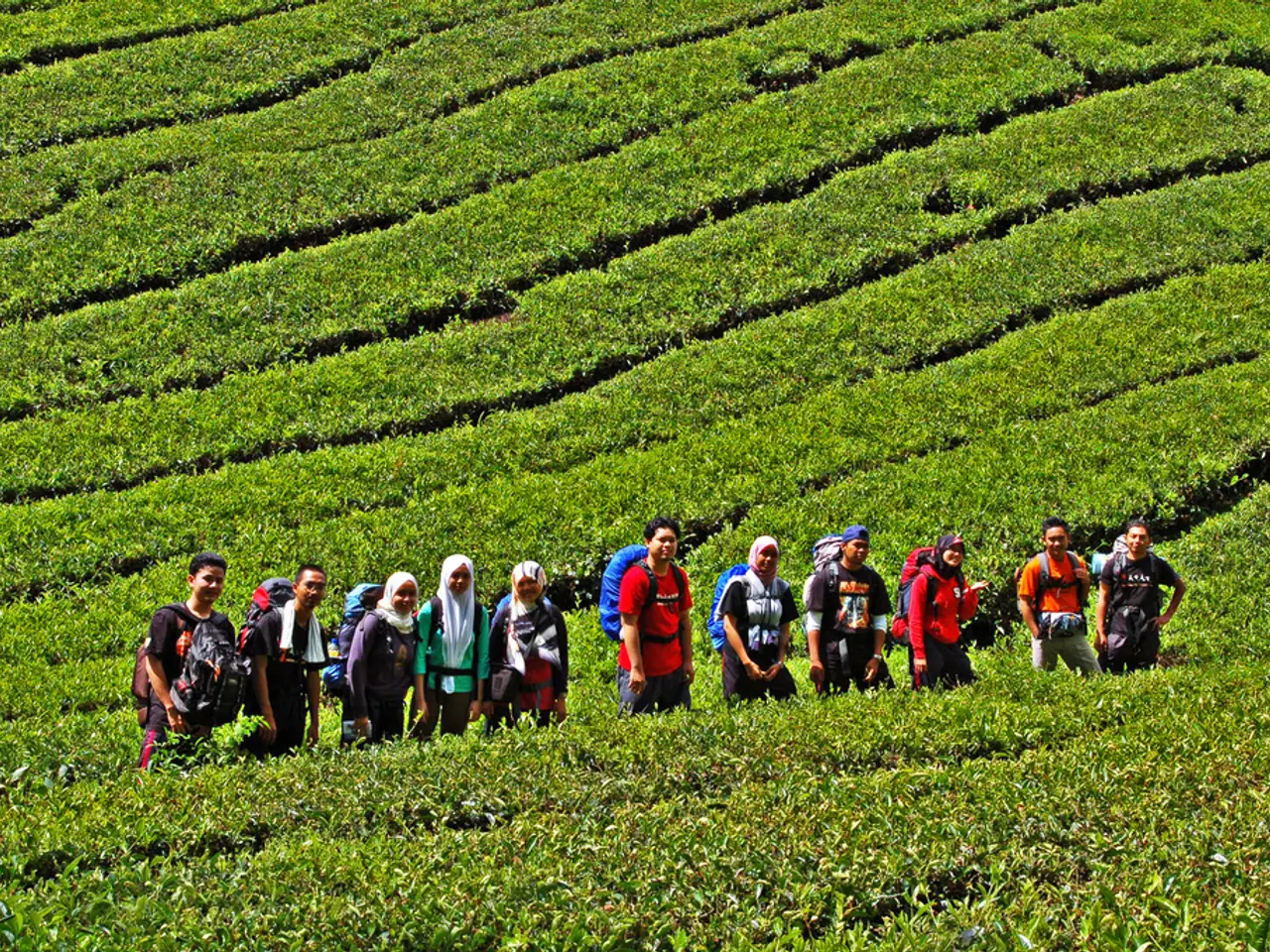Tracing Back Settlement Histories in Boone, Kenton, and Campbell Counties to be Discussed during July 29 NKY History Hour
Northern Kentucky's Settlement Patterns: A Journey Through Time
On July 29, Jeannine Kreinbrink, an esteemed archaeologist and Registrar for the Register of Professional Archaeologists, will present a virtual NKY History Hour. The presentation, titled "How Land Shaped Lives: Settlement Patterns in Boone, Kenton, and Campbell Counties," will be held on Zoom and Facebook Live.
For the early Native inhabitants, settlement patterns reflected a close relationship with the natural environment. Groups such as mammoth hunters and maize farmers chose locations based on the availability of resources, including fertile soils for cultivation and access to water sources for sustenance and transportation. The land's shaping of daily life is evident in their use of river bottoms and upland areas suited for different activities.
During the 18th and 19th centuries, European settlers similarly selected sites that leveraged the fertile river bottoms of Boone County for agriculture and the hillier terrains of Campbell and Kenton Counties for other uses. The Ohio River and its tributaries were critical, providing transportation routes, water supply, and fertile floodplains that encouraged farming. Hills offered defensive advantages and timber resources. These geographic features shaped settlement density, land use, and economic activities for these counties.
In this presentation, Jeannine Kreinbrink will delve deeper into the fascinating history of Northern Kentucky, highlighting how the land's topography, stream access, and resource distribution influenced the lives and livelihoods of its earliest residents.
The event will also be streamed live on Behringer-Crawford Museum's (BCM's) Facebook page. NKY History Hour is a free series of programs offered by Behringer-Crawford Museum that provide entertaining and thought-provoking content. Past episodes can be viewed on BCM's website (www.bcmuseum.org).
Registrations are required for Zoom participation in the NKY History Hour. Donations to support the museum's educational programming are welcome at BCM's website.
Jeannine Kreinbrink, who has been associated with Behringer-Crawford Museum since 1981, is also the president and senior partner at K & V Cultural Resources Management, LLC. She has taught as an adjunct Professor to the Anthropology and History Departments at NKU from 1997-2014.
For more information about the event or to register, visit www.bcmuseum.org.
- The upcoming NKY History Hour, happening on Zoom and Facebook Live, will feature Jeannine Kreinbrink discussing the impacts of terrain and resource availability on early settlement patterns in Cincinnati, Boone County, and nearby Kentucky regions.
- Jeannine Kreinbrink, an archaeologist and Registrar for the Register of Professional Archaeologists, will explore how the development of Northern Kentucky's communities was shaped by factors such as access to water sources, fertile soils, and defensible hills in her presentation titled "How Land Shaped Lives."
- In the presentation, Jeannine Kreinbrink, a long-time member of the Behringer-Crawford Museum, will delve into the historical significance of the landscapes in Covington, home-and-garden areas, and the surrounding regions, discussing how these spaces impacted the lifestyles and educations of original inhabitants.
- The free NKY History Hour series provides engaging content to viewers, with past episodes available on the Behringer-Crawford Museum's website, offering a glimpse into the community's rich history and development over time.
- Attendees can register for the virtual NKY History Hour on the Behringer-Crawford Museum's website, where they will also find information about making contributions to support the museum's educational programming.



